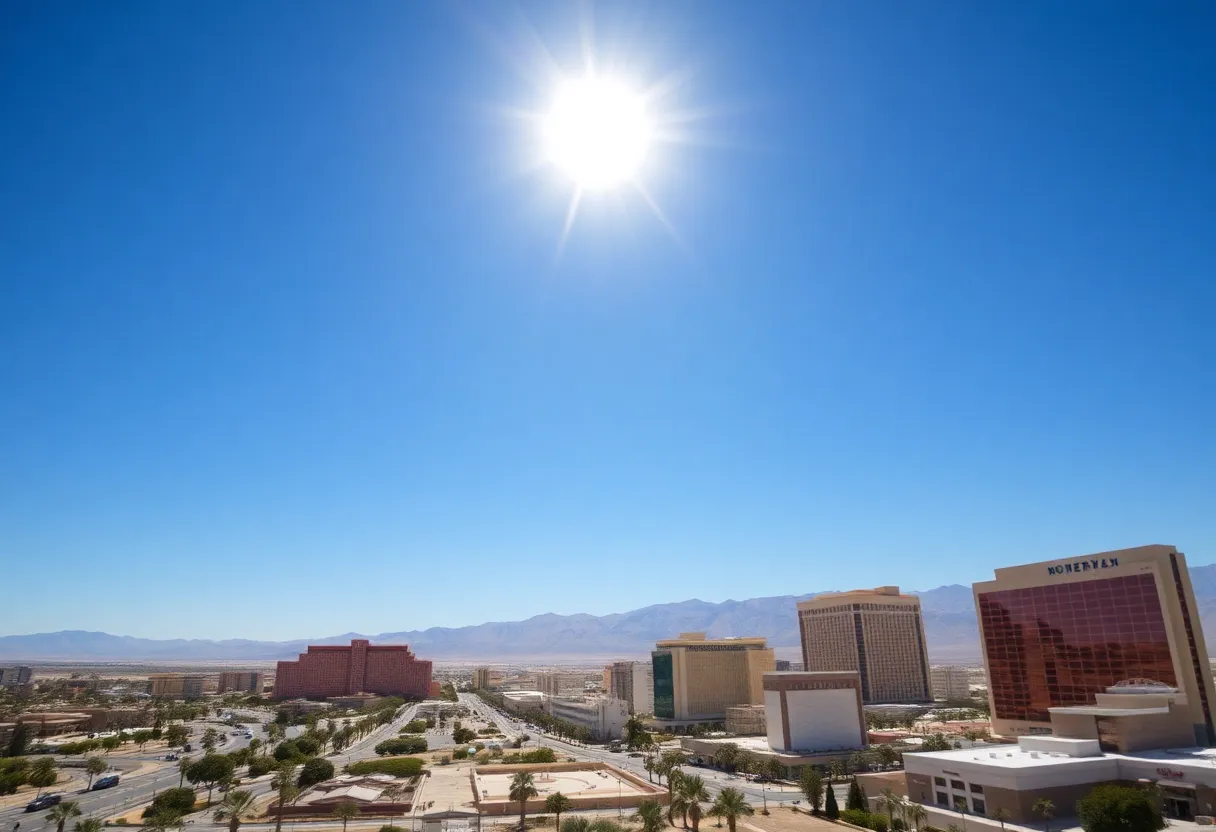News Summary
Las Vegas is currently enduring an unprecedented heatwave, with temperatures set to soar well above seasonal averages. This week, residents are preparing for temperatures exceeding 95°F, significantly surpassing the typical high of 61°F. The heatwave, driven by a weather system from the Pacific Northwest, poses health risks and has led to the establishment of emergency cooling centers in the area. With multiple cities in the Western U.S. experiencing similar record-breaking temperatures, this situation reflects a broader national heat crisis. Relief is anticipated as temperatures are expected to decrease by the following week.
Las Vegas Faces Unprecedented Heatwave
Las Vegas is currently going through a real temperature rollercoaster, with heat levels soaring to alarming heights. This week, residents are bracing themselves for temperatures that could exceed ten degrees above the normal range, marking a shift in the usual weather patterns for the region.
Breaking Records Left and Right
The forecast suggests that Friday will be the hottest day of this heatwave, with predictions showing the mercury might hit a sweltering 95°F. Just to put things in perspective, the average high for this time of year hovers around 61°F. In fact, Las Vegas recently shattered its daily record high with temperatures hitting 80°F last Monday and surpassing the previous record of 78°F set way back in 1953. It’s worth noting that locals usually don’t see their first 80°F day until March 14th!
The Mystery of the Warm Weather
A weather system drifting down from the Pacific Northwest has been the main culprit behind this sudden warmth. It’s causing the temperatures to rise by between 10-15 degrees above normal for this time of year. Windy conditions are also in play, with gusts expected to reach between 30-40 MPH, particularly on Friday. Just to keep things interesting, there’s even a slight chance of showers in the nearby mountains.
A Heatwave Like No Other
Let’s get serious for a moment. Las Vegas has been experiencing one of the most intense heatwaves on record, marking it as the most severe in the city’s history since record-keeping began in 1937. In fact, the city has hit an all-time high of 120°F, which is an alarming statistic for residents. We’re now on the fifth consecutive day with temperatures exceeding 115°F, a milestone that breaks the previous record of four days set just back in July 2005.
Health Concerns and Emergency Measures
This extreme heat is raising serious health concerns for everyone, even those who consider themselves fit as a fiddle. It’s crucial that everyone stays aware of the risks associated with heat illness. To combat this, emergency cooling centers have been set up across southern Nevada, particularly for vulnerable populations like the homeless. Local firefighters have gone so far as to deploy “polar pods” to assist in emergency situations during this sweltering weather.
A Broader Heat Crisis
This significant heatwave isn’t just confined to Las Vegas. Many other cities in the western United States, such as Portland and Reno, are grappling with their own record-breaking temperatures, contributing to a larger national heat crisis. This situation is made even more precarious by the heightened wildfire risks that are a direct effect of dry vegetation and high temperatures, which are currently being faced in states like California and Oregon.
What Lies Ahead
As the weekend unfolds, relief is on the horizon with temperatures gradually trickling back to the low 60s by next Monday. However, until then, residents should remain vigilant and take appropriate measures to protect themselves and their loved ones from the intense heat. The National Weather Service has extended its excessive heat warnings across much of the southwestern U.S. through Saturday morning, urging people to stay cool and hydrated as the extreme weather persists.
So, Las Vegas, hang in there! With the return to average temperatures just around the corner, let’s get through this unprecedented heatwave together.
Deeper Dive: News & Info About This Topic
HERE Resources
Additional Resources







